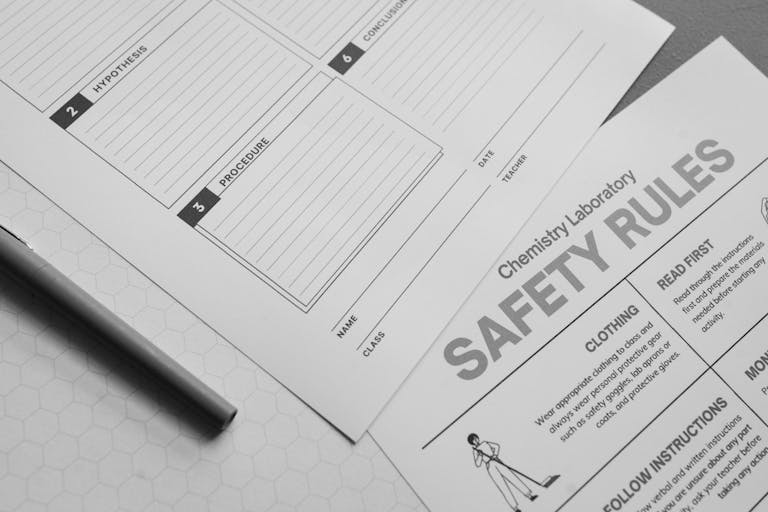The Role of Empathy in Effective Counselling
Introduction
Empathy is widely recognized as a cornerstone of effective counselling. In the context of therapy, it enables the therapist to establish a profound emotional connection with the client by being able to understand and empathise with their feelings. Therapeutic success depends on creating a safe space where clients feel understood, respected, and appreciated, which is facilitated by this relationship. In this article, we will discuss the various forms of empathy, their importance in counselling, and how counsellors can develop and use them in their work.

Understanding Empathy in Counselling
In counselling, empathy involves more than just experiencing the client’s emotions; it also involves understanding those emotions from the client’s point of view. One of the fundamental requirements for successful therapy, according to person-centred therapy pioneer Carl Rogers, is empathy (Rogers, 1957). He maintained that personal development and self-discovery are facilitated when therapists are genuinely empathetic with their clients.
There are three primary types of empathy relevant to counselling:
- Cognitive Empathy: This involves understanding the client’s thoughts and emotions on an intellectual level. It allows the counsellor to grasp what the client is experiencing without necessarily sharing those emotions.
- Emotional Empathy: This form of empathy involves physically feeling what the client feels. It’s the counsellor’s ability to emotionally resonate with the client’s experiences.
- Compassionate Empathy: This is the most actionable form of empathy, where the counsellor not only understands and feels the client’s emotions but is also moved to help alleviate their distress.
Research has shown that these forms of empathy can significantly enhance the therapeutic alliance, which is the collaborative and trusting relationship between a counsellor and their client (Elliott et al., 2011). A strong therapeutic alliance is one of the most reliable predictors of positive treatment outcomes.
The Impact of Empathy on Counselling Outcomes
The effects of empathy on counselling results are widely known. Elliott and colleagues (2011) discovered that, regardless of the therapist’s theoretical orientation, empathy is a moderately strong predictor of therapeutic success in their meta-analysis. This means that empathy is still essential for client progress regardless of the type of counselling a therapist uses—cognitive-behavioural therapy (CBT), psychodynamic therapy, or any other kind of counselling.
One of the reasons empathy is so powerful is that it helps clients feel heard and understood, which can be incredibly validating. Many clients come to therapy feeling isolated in their struggles, and the experience of being empathized with can reduce feelings of loneliness and shame. This, in turn, can motivate clients to engage more fully in the therapeutic process and be more open to exploring difficult emotions and experiences.
Moreover, empathy can also help in managing countertransference, which occurs when a therapist’s own feelings and experiences are projected onto the client. By maintaining a focus on the client’s perspective, counsellors can better manage their emotional responses and maintain a professional boundary that is both empathetic and effective.
Cultivating Empathy as a Counsellor
While some individuals may naturally possess a high degree of empathy, it is also a skill that can be developed and enhanced through practice and mindfulness. Here are some strategies counsellors can use to develop their empathy:
1. Active Listening
This involves fully concentrating, understanding, responding, and then remembering what the client is saying. It requires the counsellor to be fully present during sessions, avoiding distractions and interruptions. Active listening helps the counsellor pick up on subtle cues in the client’s speech and body language, which can deepen their understanding of the client’s experience.
2. Mindfulness Practices
Mindfulness can help counsellors stay present and attuned to their clients’ needs. By regularly practising mindfulness, counsellors can become more aware of their own emotions and biases, which allows them to approach their clients with a clearer, more empathetic perspective (Hick & Bien, 2008).
3. Self-Reflection
Counsellors should regularly reflect on their interactions with clients, considering how their own emotions, thoughts, and experiences may influence their ability to empathize. This reflection can be done through journaling, supervision, or peer discussions.
4. Cultural Competence
Understanding the client’s cultural background is essential for empathy. Cultural competence involves recognizing and respecting the client’s cultural context and how it shapes their experiences and perspectives. By being culturally competent, counsellors can avoid misunderstandings and ensure that their empathy is appropriately applied (Sue et al., 2009).
5. Empathy Training
Formal training programs are available to help counsellors develop their empathetic skills. These programs often involve role-playing, simulated client interactions, and feedback from supervisors or peers. Research has shown that empathy training can lead to significant improvements in both the counsellor’s empathetic abilities and client outcomes (Teding van Berkhout & Malouff, 2016).
Challenges to Empathy in Counselling
While empathy is essential, it is not without its challenges. One of the primary difficulties counsellors face is empathy fatigue, also known as compassion fatigue. This occurs when a counsellor becomes emotionally drained from constantly engaging with clients’ emotions. Over time, this can lead to burnout, reduced empathy, and ultimately, less effective counselling.
To combat empathy fatigue, counsellors need to practice self-care and set boundaries. Regular supervision and peer support can also provide a space to process the emotional toll of counselling and develop strategies for maintaining empathy without sacrificing personal well-being.
Another challenge is ensuring that empathy does not lead to over-identification with the client. While it is important to understand and share the client’s feelings, counsellors must also maintain a level of professional detachment to provide objective and effective support. Over-identification can blur the boundaries between counsellor and client, making it difficult to maintain a therapeutic relationship that is both empathetic and professional.
Conclusion
Effective counselling must have empathy since it is essential to creating a solid therapeutic connection and promoting successful treatment outcomes. Counsellors can improve their ability to connect with clients and support their mental health journeys by developing empathy through active listening, mindfulness, self-reflection, cultural awareness, and formal training. Counsellors must, however, be mindful of the difficulties associated with empathy, such as over-identification and empathy fatigue, and take appropriate action to address these problems.
Empathy is still a valuable and ageless skill in the counselling profession despite its constant evolution. Counsellors must try to maintain empathy at the centre of their work to make sure that every client feels heard, understood, and supported as they work towards healing since research on the subject continues to demonstrate how important it is.
References
Elliott, R., Bohart, A. C., Watson, J. C., & Greenberg, L. S. (2011). Empathy. Psychotherapy, 48(1), 43–49.
Hick, S. F., & Bien, T. (2008). Mindfulness and the therapeutic relationship. Guilford Press.
Rogers, C. R. (1957). The necessary and sufficient conditions of therapeutic personality change. Journal of Consulting Psychology, 21(2), 95–103.
Sue, S., Zane, N., Hall, G. C., & Berger, L. K. (2009). The case for cultural competency in psychotherapeutic interventions. American Psychological Association.
Teding van Berkhout, E., & Malouff, J. M. (2016). The efficacy of empathy training: A meta-analysis of randomized controlled trials. Journal of Counseling Psychology, 63(1), 32–41.






